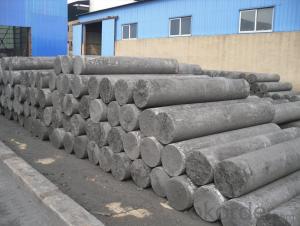When it comes to choosing between copper and graphite electrodes, it’s like trying to decide between your favorite childhood teddy bear and that shiny new toy you’ve been eyeing. Both have their charms, but which one will be your go-to for your next project? Let’s dive into the world of electrodes and see what makes these two materials tick.
Copper, the shiny, reddish-brown metal, has been a staple in the world of electronics for ages. It’s like that old, reliable friend who’s always there when you need them. Copper electrodes are known for their excellent conductivity, which means they can handle a lot of electrical current without breaking a sweat. They’re also pretty easy to work with, making them a favorite among hobbyists and professionals alike. Plus, copper’s corrosion resistance is a bonus, as it can stand up to the test of time without rusting away.
Now, let’s talk about graphite, the dark horse of the electrode world. Graphite is a form of carbon, and it’s got some tricks up its sleeve. It’s lightweight, which makes it a great choice for applications where weight is a concern. And don’t underestimate its conductivity; graphite can handle a decent amount of electrical current too. Plus, it’s self-lubricating, which means it can reduce friction in certain applications. But there’s a catch: graphite is more prone to wear and corrosion than copper, so it might not be the best choice for long-term projects.
So, how do these two materials stack up against each other in terms of performance? Let’s break it down into a few key areas: conductivity, durability, and cost.
In terms of conductivity, copper is the clear winner. It has a higher conductivity rate than graphite, which means it can handle more electrical current without overheating or causing other issues. This makes copper electrodes ideal for high-power applications, where you need a material that can take the heat.
Durability is another area where copper shines. It’s more resistant to corrosion and wear, which means it can last longer in your projects without needing to be replaced. This can be a significant advantage if you’re working on something that requires long-term stability.
When it comes to cost, the playing field is a bit more level. Copper is generally more expensive than graphite, but the difference in price might not be as significant as you’d think. In some cases, the higher cost of copper might be offset by its superior performance and durability. However, for projects where cost is a major concern, graphite could be a more budget-friendly option.
But there’s more to电极 than just conductivity, durability, and cost. Let’s talk about some of the other factors that might influence your decision.
One thing to consider is the environment in which your electrodes will be used. If you’re working in a wet or humid environment, copper might be a better choice due to its corrosion resistance. On the other hand, if weight is a critical factor, graphite’s lightweight nature could give it the edge.
Another factor to consider is the specific application of your electrodes. If you’re working on a project that requires high conductivity and durability, copper might be the way to go. But if you’re looking for a more budget-friendly option that can still get the job done, graphite could be a viable alternative.
In the end, the choice between copper and graphite electrodes comes down to your specific needs and preferences. It’s like choosing between a comfortable pair of sneakers and a fancy pair of heels. Both have their place, and the best choice for you will depend on where you’re going and what you’re doing.
So, whether you’re a seasoned engineer or a DIY enthusiast, understanding the pros and cons of copper and graphite electrodes can help you make an informed decision for your next project. And who knows? You might even find a new favorite material to add to your toolbox.

